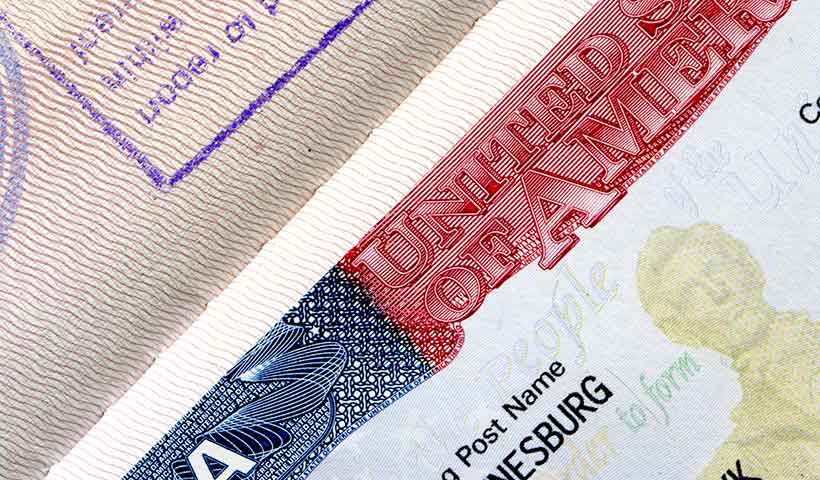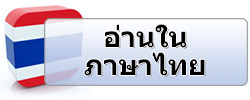What is a U.S. K-1 fiancee visa?
The K1 Visa Thailand was designed to allow you (if you are an American citizen) to bring your Thai fiancée to the US for the purpose of marriage. Once granted, your fiancée will have six months to travel to the US. Upon arriving in the USA, your Thai fiancée should marry within 90 days and file for adjustment of status or depart the US if the visa expires.
What are the basic requirements for a U.S. K-1 fiancee visa?
- You must be a US Citizen to petition for the K1 Visa;
- You must have met your Thai fiancée face to face during the last two years. There are exceptions such as those pertaining to religious rites
- You and your Thai fiancée must pass a criminal record check for the K1 Visa;
- Your Thai fiancée must pass a medical exam for the K1 Visa;
- You must meet the financial requirements for the K1 Visa; (petitioner is able to meet the income eligibility requirement in the Affidavit of Support he or she must show that his/her income is 100% of the poverty line depending on the state where you from. Please see K1 Visa Requirements.
- You and your Thai fiancée must be free to marry to obtain a K1 Visa.
- You must have the intention to marry your Thai fiancée within 90 days of arriving in the United States as the K1 Visa is only valid for 90 days.
What are the steps in obtaining a U.S. K-1 fiancee visa?
- As a first step, you must submit the K1 Visa Petition to the USCIS Service Center with jurisdiction over your place of residence.USCIS will send a letter after submission called Notice of Action 1. This letter will basically confirm your submission of the application. It will generally take about 3-4 months for USCIS to process the petition. Oftentimes USCIS will reject a petition because the petition was filed with incorrect documentation or insufficient documentation. For this reason, it may be wise to consult with a lawyer as you go about the application.After you file the I-129F petition with the USCIS office the waiting begins. It usually takes USCIS about 3-4 months to process the I-129F petition. After USCIS finishes processing the I-129F petition they will you the Notice of Action 2. This document essentially states the decision of the processing of the application, whether it was denied/ approved.
- If the petition is approved it will be forwarded to the National Visa Center. At the National Visa Center (NVC) your Thai fiancée’s I-129F petition will be further processed. Basically, NVC does a background check to see who the Thai fiancée beneficiary of the K1 Visa is and verify if she is inadmissible to the USA, if ever. It usually takes NVC approximately 4 weeks to process the petition.
- After which they will get in touch with you and tell you that the petition is being forwarded to the US Embassy in Bangkok or the US Consulate in Chiang Mai. In this letter, they will also give you and your fiancée a BNK number. This number is your Thai fiancée’s ID number for the US Embassy or Consulate, and she will need this reference number in order to obtain an interview appointment it will make all correspondence with the US Embassy more convenient.
- When the US Embassy in Thailand receives your Thai fiancée’s K-1 petition from NVC they will send her a letter known as packet 3. Within this letter is a list of documents that your fiancée will need to collect for the interview at the Embassy. The letter will state that the Thai fiancée must collect these documents BEFORE sending back a response requesting an interview date. But you can just send the letter back requesting an interview date and collect the documents as you wait for your upcoming schedule. By doing this the interview is scheduled as quickly as possible and expedites the process.
- Once the interview is completed the Consular official will likely tell your Thai fiancée either that the petition is approved or request more information using a 221(g). A 221(g) is a document the Embassy will give to your Thai fiancée containing a list of other documents that she must provide before the Visa will be granted. A 221(g) is often requested in Thailand because of a name change. This changes their name quite often in comparison to Americans and might have done so at many points in their life. It is quite common that their name may have been officially changed when they were still infants. Because of this, the Embassy wants to see all of the official name change certificates in order to make sure that the person seeking to immigrate to the US is in fact who they say they are. There are many other reasons that the Embassy may request a 221(g), but name change seems to be the most common.
- After the US Embassy/Consulate officials in Thailand have received the documentation they deem sufficient they will issue the visa. For a K-1 Visa, a conservative estimate of the turnaround time is approximately 5 business days. The time of year and workload at the Embassy has a lot to do with how quickly the Embassy will get the visa into the passport. After the Embassy has processed the Visa and put it in the Thai Passport, the Embassy officials will call the Thai fiancée and tell her to come to pick it up any day after 3 pm. If you have a US attorney working in Bangkok, then he or she can pick it up on the fiancée’s behalf. The Thai fiancée will have until the expiration of the K-1 Visa to travel to the USA.
Canceling or Rescheduling Your Interview Appointment
If you need to reschedule or cancel a K1 visa interview appointment, it’s important to follow the specific procedures outlined by the US embassy or consulate where the interview is scheduled. Here are general steps you may take:
1. Visit the Official Website
Go to the official website of the US embassy or consulate where the interview is scheduled. Look for the consular section or the specific page related to visa services.
2. Log into the Visa Appointment System
Access the visa appointment system using the credentials you used to schedule the interview. This may involve logging into an online portal provided by the embassy or using the specific appointment scheduling system.
3. Locate the Rescheduling or Cancellation Option
Navigate to the section that allows you to manage or modify your visa appointment. Look for options related to rescheduling or canceling.
4. Follow Instructions
Follow the instructions provided on the website to either reschedule or cancel the appointment. There may be specific steps, forms, or notifications required.
5. Provide Reason for Rescheduling or Canceling
In some cases, you may be asked to provide a reason for rescheduling or canceling the appointment. Be prepared to explain your circumstances.
6. Check for Fees or Restrictions
Be aware of any fees associated with rescheduling or canceling appointments. Some embassies may have specific policies, and fees may apply under certain conditions.
7. Contact the Embassy or Consulate (if necessary)
If you encounter difficulties or have specific questions, contact the embassy or consulate directly. They may provide additional guidance or assistance.
8. Reschedule in Advance
Whenever possible, try to reschedule well in advance of the original appointment date to allow for processing and adjustment of their schedule.
9. Keep Confirmation of Changes
Once you have successfully rescheduled or canceled the appointment, keep confirmation of the changes for your records. This may include confirmation emails or reference numbers.
It’s essential to note that the specific procedures and requirements can vary among US embassies and consulates where you apply your visa from. Always refer to the official instructions provided by the specific location where the K1 visa interview is scheduled. Additionally, be aware of any impact rescheduling may have on the overall visa processing timeline.
How long is the U.S. K-1 fiancee visa valid?
The visa usually lasts for 6 months. Once in the USA you and your Thai fiancée must get married within 90 days or your Thai fiancée must leave the country.
How long is the U.S. visa processing for a K-1 fiancee visa?
It takes about 6 months from the time you submit the K-1 Visa petition with USCIS to the time your Thai fiancée obtains the actual K-1 Visa at the US Embassy in Bangkok. The process can vary according to each specific case. It will really depend on how long it will take for the USCIS and the foreign consular to process the application. Errors made by the petitioner or the fiancée can also postpone the process a great deal, so it’s best to avoid that. It is important to make sure everything is correctly filled out and all the necessary documents are submitted. Our firm can expedite the process so that your fiancée can come with you to live in the United States sooner.
Can a K-1 fiancee visa be extended once either party realizes that marriage is not an option?
The K-1 visa cannot be extended beyond the 90-day period. The visa is only good for one entry into the United States within six months of its issuance. The visa is issued only when both parties are fully aware that they must marry within 90 days of the fiancée’s arrival in the United States. The fiancée visa will only be granted to an individual who takes an oath that he/she has true intent to marry a U.S. citizen. Though you are not required to wed, your fiancée will be sent back to his/her country abroad if the wedding does not occur within the allowed time.
What are the reasons why the U.S. K-1 fiancee visa can be rejected?
US K-1 Fiancee visa can be rejected if:
- your relationship with your Thai fiancée is not bona fide or
- if your Thai fiancee is inadmissible to the US. Common factors that may prevent a foreign national from obtaining a K-1 Fiancee visa to enter the US.
What are the grounds for inadmissibility?
- health issues (ex. communicable disease of public health significance, inability to receive vaccinations, physical or mental disorders);
- involvement with or use of drugs, controlled substances, or chemicals;
- a criminal record;
- involvement in prostitution;
- likely at any time to become a public charge (i.e. the US citizen cannot support the foreign fiancé(e)/spouse);
- violations of any immigration law (including being removed from the US, being unlawfully present in the US, entering the US illegally, and misrepresenting or omitting facts on or in connection with a visa application); or
- seeking to enter the United States to engage in any unlawful activity.
The granting of a visa can be delayed if the US Consular Officer has concerns regarding any of the issues above and/or needs additional information.
What if the Thai fiancee is considered inadmissible?
There’s still hope should your Thai fiancée be found inadmissible. They could be entitled to obtain a waiver of the grounds of inadmissibility. An I-601 waiver form should be filed to get a waiver for your fiancée. However, this form can only be filed after a consular official has concluded that the ground of inadmissibility exists as per the Immigration and Nationality Act. If the application of your Thai fiancée was denied in Thailand, the I-601 petition must be filed with the USCIS Bangkok District Office.
According to the said waiver of grounds of inadmissibility, the consistent refusal to allow the Thai fiancée to enter the United States will cause “extreme hardship” to the U.S. Citizen. The term “extreme hardship” is never defined in the statute. Although, it can be implied that the hardship must be over and above mere everyday difficulty to equate with the term “extreme.” This “extreme hardship” must also fall upon the US citizen, and not the Thai fiancée, in order to entitle the latter to a waiver.
Can a K-1 visa be processed without the immigration attorney’s assistance?
While it is possible for you to obtain a fiancée visa without any legal assistance, it can be very difficult. You have to rely on the information on the internet, which may be outdated as immigration laws and procedures are constantly changing. Consulting with Siam Legal Thailand’s team of competent lawyers will expedite the process because of their knowledge of the current regulations and familiarity with the immigration process. Thus, your fiancée’s immigration papers will surely be processed faster with the help of Siam Legal.
Why is it important to hire a K-1 visa attorney?
Alternative visa services do not offer the same competitive advantages that a law firm does. Siam Legal Thailand can offer sound legal advice apart from the knowledge of the application process. Check their K-1 visa in Thailand page. You can be assured that the lawyers always have to follow the regulations of the state bar association, so you are assured that there is no illegal transaction being done. Lastly, other services are not always cheaper and some even charge the same fees as a law firm. You could use the same amount to pay a law firm like Siam Legal International for quality consultancy.
Contact Us
|
For English language, call: +1 (702) 570-2477 and look for Ken Graham |
|
For Thai language, call: and look for Vitchuwan “Linda” Pringpuangkeo |









